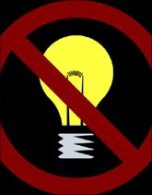 Two-thirds of the infrastructure to develop energy-efficient technologies will need to be built now for India to reduce its emission intensity 20-25 per cent over 2005 levels by 2020.
Two-thirds of the infrastructure to develop energy-efficient technologies will need to be built now for India to reduce its emission intensity 20-25 per cent over 2005 levels by 2020.
Policies that promote energy efficiency, like tax breaks and innovations, need to be put in place immediately, Ajay Mathur, Director General of Bureau of Energy Efficiency (BEE), tells Kirtika Suneja.
Edited excerpts:
Given that it is expensive for developing countries to build energy-saving technologies, what is the way ahead?Agreed, technologies and finances are challenges for developing countries. But it is also an opportunity, as two-thirds of the infrastructure needed by 2030 will have to be built between now and then.
The technologies will need to address issues of mitigation, adaptation, afforestation... The question is not whether it will happen, but when will it happen.
How cost-effective will it be?
Super-critical technology for coal power generation was introduced 35 years ago. At that time, cost of electricity from it was 25 per cent more. Today, it is 80 per cent of the price it cost then. Again, 25 years ago, CFLs cost Rs 800-1,000. Now, they sell at much less. The question is, how do we accelerate the process.
Why is adoption slower in developing countries?
Every application has its specific problems. Energy-efficient technologies, at least in the beginning, cost more. The financial issue relates to the incremental cost of technology, which can be higher even in the long run, like in case of solar and, hence, the additional costs need to be managed.
However, as the number of suppliers for these technologies increases, volumes rise and competition is enhanced. This makes adoption easier. Lowering the risk perception is important and that can be done if there is cooperation between all stakeholders - product producers, policy makers and regulators.
That is what the Copenhagen Accord has done. It has strengthened the fact that technology is an integral part of decision-making and, for the first time, a technology mechanism is to be created by both developed and developing countries.
So, how can incentives or tax breaks encourage companies in developing economies?
We are actively thinking about the signals to promote energy efficiency. Though, in principle, I don't like incentives for energy efficiency, we may need to provide such signals as transitional issues. We have made some proposals to the finance ministry and the required subsidies will be routed through respective ministries.
Please elaborate on the proposals you have made...
We are looking at different excise duties for products which are labeled energy efficient. So, products which are more energy efficient will pay lower excise. Another proposal relates to tax breaks for energy services companies, besides a host of incentives for companies that invest in energy-efficient technologies. The challenge is that large bandwidth exists within the same industry. We have very energy-efficient plants on one hand and, on the other, very bad ones as well.
What about consumer appliances?
Electrical appliances are charged on the basis of their branding. Even before the energy efficiency stars were given and the labelling of these products began, some brands were expensive and others were not. It is the brand which decides the value and all of us invest in energy-consuming appliances. With increasing buying power, this investment will go up and the challenge will be to make these appliances energy efficient.









